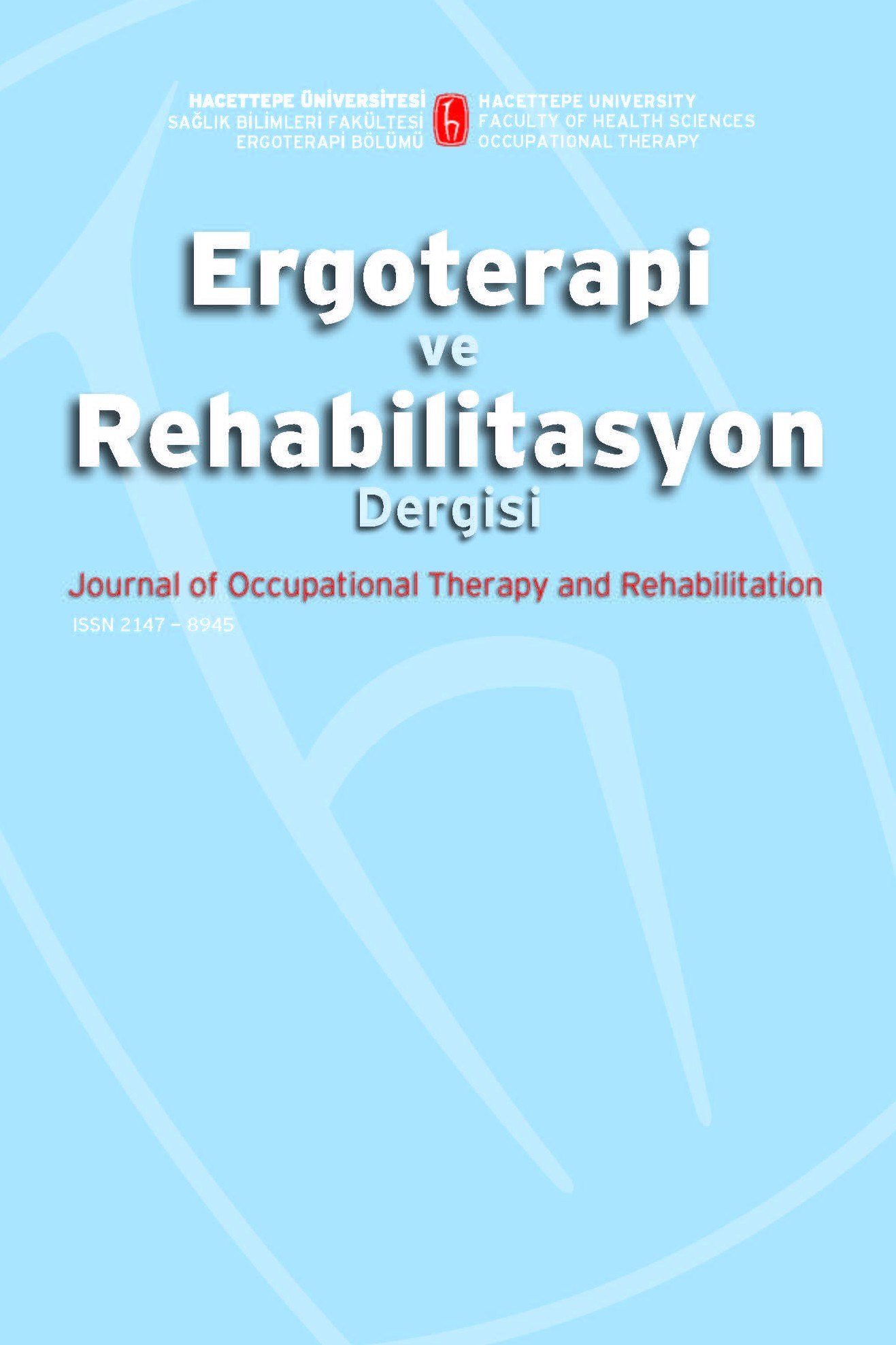Hematopoetik Kök Hücre Nakli Yapılan Hastalarda Nöropsikolojik Fonksiyonların Yaşam Kalitesine Olan Etkisinin İncelenmesi
Amaç: Hematopoetik kök hücre nakli (HPHN) yapılan kanser hastalarında nöropsikolojik defisitler sıklıkla görülen yan etkiler içerisinde yer alır. Çalışmamızın amacı; kök hücre transpalantasyonu sonrası hastanede yatan hastaların nöropsikolojik fonksiyonlarının yaşam kalitesine olan etkisini incelemek idi. Gereç ve yöntem: Çalışmamıza Hacettepe Üniversitesi Onkoloji Hastanesi Kök Hücre Transplantasyonu Ünitesinde tedavi alan 32 hasta dahil edildi. Hastaların görsel-uzaysal becerileri ve yürütücü işlevleri Saat Çizme Testi (SÇT) ile değerlendirilirken yaşam kalitesi SF-36 Yaşam Kalitesi Ölçeği ile değerlendirildi. Sonuçlar istatistiksel olarak karşılaştırıldı. Sonuçlar: Çalışmaya katılan hastaların yaş ortalaması 48,56±4,24 yıl idi. Ortalama SF-36 puanı 44,65±21,62 iken SÇT ortalama puanı 2,21±1,4 olarak tespit edildi. SÇT ile SF-36 fiziksel rol (r:0,834), sosyal fonksiyon (r:0,723) ve mental sağlık (r: 0,631) arasında ilişkiler tespit edildi (p<0,05). Tartışma: Hematopoetik kök hücre nakli yapılan kanser hastalarında görsel-uzaysal beceriler ve yürütücü işlevlerde meydana gelen azalma yaşam kalitesini olumsuz yönde etkiler. Bu grupta nöropsikolojik fonksiyonların uzun dönemde yaşam kalitesine olan etkilerinin incelendiği kapsamlı ileri çalışmaların yapılması önerilmektedir
Anahtar Kelimeler:
Hematopoetik kök hücre transplantasyonu, Nöropsikolojik test, Yaşam kalitesi
Investigation of the Effects of Neuropsychological Functions on Quality of Life of Patients with Hematopoietic Stem Cell Transplantation
Purpose: Neuropsychological deficits can be seen as one of the side effects of hematopoietic stem cell transplantation (HSCT) in patients with cancer. The aim of the study is to investigate the effects of neuropsychological functions on the quality of life of hospitalized cancer patients after hematopoietic stem cell transplantation. Materials and Method: A sample of 32 HSCT patients from Hacettepe University Oncology Hospital, department of stem cell transplantation were included. Visual spatial and executive functions were evaluated by Clock Drawing Test (CDT) while quality of life was evaluated by SF-36 Quality of Life Questionnaire (SF-36). Results were compared statistically. Results: Mean age was 44.65±21.62 years. Mean SF-36 mean score was 44.65±21.62 while SF-36 mean scores was 2.21±1.4. Correlations between CDT and physical role (r:0.834), mental health (r: 0.631) and social role (r:0.723) subtests of SF 36 were recorded. conclusion: Neuropsychological function affects quality of life of patients undergone stem cell transplantation for malignancies. Further studies are recommended to investigate the long-term effects of neuropsychologic functions on quality of life in this group
- ISSN: 2147-8945
- Yayın Aralığı: Yılda 3 Sayı
- Başlangıç: 2013
- Yayıncı: Hacettepe Üniversitesi Sağlık Bilimleri Fakültesi
Sayıdaki Diğer Makaleler
Yaşlı Bireylerde İzole Kas Kuvveti ve Oranı ile Denge ve Yaşam Kalitesi Arasındaki İlişkiler
Öznur BÜYÜKTURAN, Gamze EKİCİ, Necmiye YILDIRIM ÜN
Türkiye’de Risk Altındaki Çocukların Ana Akım Basında Temsili
Onur ALTunTAŞ, Hasan Hüseyin ALTInOVA
Sedef KARAYAZGAN, Meral HURİ, Burcu Semin AKEL, Evren ÖZDEMİR
Türkiye'de risk altındaki çocukların ana akım basında temsili
Onur ALTUNTAŞ, Hasan Hüseyin ALTINOVA
